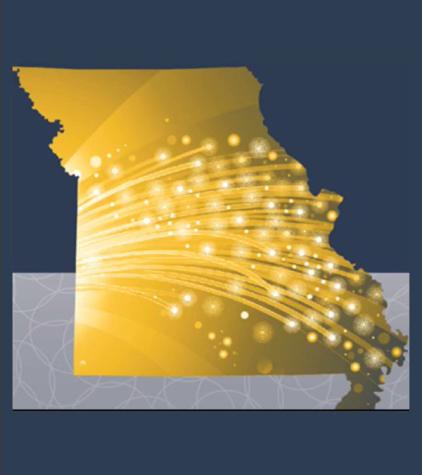Shannon and Carter counties in southeastern Missouri have some of the worst broadband coverage in the state. Local stakeholders say that means communities in the two counties are cut off from essential health, education and employment resources.
That is about to change. A $191,038 grant will help the two counties develop a comprehensive broadband adoption plan, says Alison Copeland, University of Missouri System deputy chief engagement officer.
The grant through the USDA’S Rural Utilities Service provides Broadband Technical Assistance funds for this work. The project will be led by community stakeholders and residents and facilitated by University of Missouri Extension.
The work started April 4 with the first of 10 community meetings scheduled to kick off the Digitally Connected Community Guide process, which helps participants develop a workable plan for bringing high-speed internet to their communities. To date, six other Missouri counties have used this process.
Jennifer Williams, an MU Extension engagement specialist serving the two counties, will assist the community groups as they work through the process.
Communities have experienced a lot of frustration about broadband expansion, says Williams. Previous meetings in the counties’ rural communities never resulted in broadband expansion plans.
“That’s because there are three puzzle pieces that have to be present: subscribers, internet service providers willing to build here and the money to pay for the expansion,” she said. “We’ve always been missing at least one of those pieces in the past, usually the funding piece. Now, with $1.7 billion in BEAD (Broadband Equity, Access and Deployment) Act money, as well as investments from state and local governments, we finally have all the puzzle pieces and we just need communities to think about how to put those pieces together.”
Shannon County, ranked as the poorest county in Missouri, encompasses parts of the Mark Twain National Forest and the Ozark National Scenic Riverways, but the county does not draw many visitors on its own. Much of the land in rural Carter County is owned by federal or state governments, with challenging terrain and a poverty rate of more than 20%.
“From a community perspective, a key to sustainable economic vitality depends on the availability of affordable and reliable broadband coverage for this community,” said Michael Phoenix, mayor of Winona, a town of about 950 in southeastern Shannon County. “While what is already here serves our community well, we are going to need reliable internet service if we’re going to allow for growth and skill development and ensure a stronger local economy.”
Members of the General Federation of Queen Anne Civic Club of Carter County agree. The club has a proud history of effecting change in Van Buren and Carter counties by raising awareness of local issues and working to meet needs within the community.
“I’m a retired principal and teacher and have always been interested in the education piece of internet access,” said Janet Hoskins, president of the club. “I like to know that our kids, no matter where they are, have access to learning. This grant and community process will help us bring needed tools to our communities.”
Club member Sheila Bristol, a nurse for 32 years, says she sees the need to provide electronic record and telehealth access within the reach of her neighbors and friends. She views involvement in this process as key to community health and revival.
In addition to MU Extension’s Digitally Connected Community Guide process, the grant supports:
- Economic analyses showing the potential impact of broadband expansion on the two counties. These will be conducted by Alan Spell, assistant extension professor with MU Exceed.
- Environmental and technical design studies for each of the two counties conducted by a third-party vendor.
These reports will provide the research needed to attract internet service providers to the area, Copeland said.
“We are grateful for the vision and support of Missouri’s USDA field representative, Chris Collins, who provided insight and support in our grant application,” she said.
For a community meeting schedule and more information about the Digitally Connected Community Guide process in Carter and Shannon counties, contact Jennifer Williams at 573-200-6028 or jenniferwilliams@missouri.edu.
Writer: Katherine Foran
